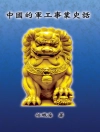In ‘The Influence of Sea Power upon History, 1660-1783, ‘ Alfred Thayer Mahan meticulously articulates the pivotal role maritime dominance has played in shaping global politics and warfare. Through a blend of historical analysis and strategic theory, Mahan examines the interplay between naval power and national prosperity. His eloquent prose weaves a narrative that spans significant naval battles, geopolitical tensions, and the implications of sea trade routes, while drawing connections to the expansionist policies of major 17th and 18th-century powers. The text stands as a foundational work in naval strategy, influencing military thought and the geopolitical landscape for decades to come. Mahan, a U.S. Naval officer and historian, emerged as a preeminent theorist of sea power during a period marked by the ascension of maritime empires. His personal experiences and observations during his naval career, including his service during the Spanish-American War, informed his beliefs about the essential nature of sea power as an instrument of national strength. His insights resonated with contemporary policymakers and military leaders, underlining maritime supremacy’s significance in global affairs. This seminal work is indispensable for readers interested in military history, international relations, or maritime studies. Mahan’s compelling arguments not only illuminate past conflicts but also provide strategic insights relevant to contemporary geopolitics. Engaging and thought-provoking, this classic text serves as a critical resource for understanding the enduring significance of naval power.
Yazar hakkında
Alfred Thayer Mahan, born on September 27, 1840, was a preeminent American naval officer and historian, whose works profoundly influenced naval strategy. His seminal work, ‘The Influence of Sea Power upon History, 1660-1783’, was published in 1890 and revolutionized naval warfare concepts with its thesis that dominance at sea was crucial for national power and prosperity. This book, praised for its rigorous historical analysis and synthesis, has been widely regarded as a cornerstone in both maritime strategy and international relations, shaping not only naval tactics but also the foreign policies of great powers. Mahan’s ideas, often encapsulated in discussions of the strategic importance of chokepoints and the building of a strong navy, underscore the intersection of maritime commerce and military might. A graduate of the United States Naval Academy, Mahan served as an officer during the Civil War, later transitioning to an esteemed career as a lecturer and president at the Naval War College. His intellectual influence extended beyond the maritime milieu, affecting the geopolitical strategies of nations well into the 20th century and beyond. Admirers of Mahan’s writings ranged from statesmen to naval tacticians, including figures like Theodore Roosevelt. Mahan’s literary oeuvre, with its clear articulation of sea power’s role in shaping the modern world, remains a reference standard for students of military history and naval warfare.












